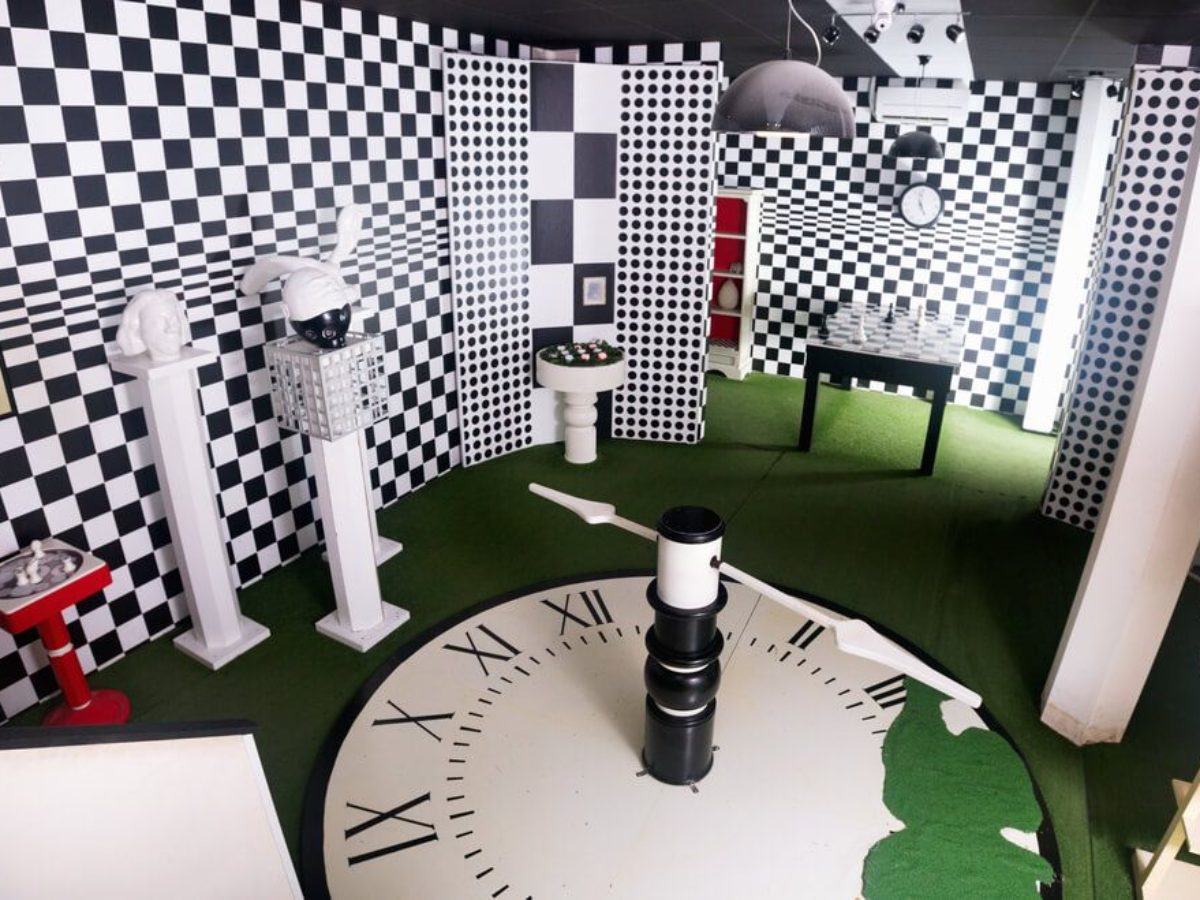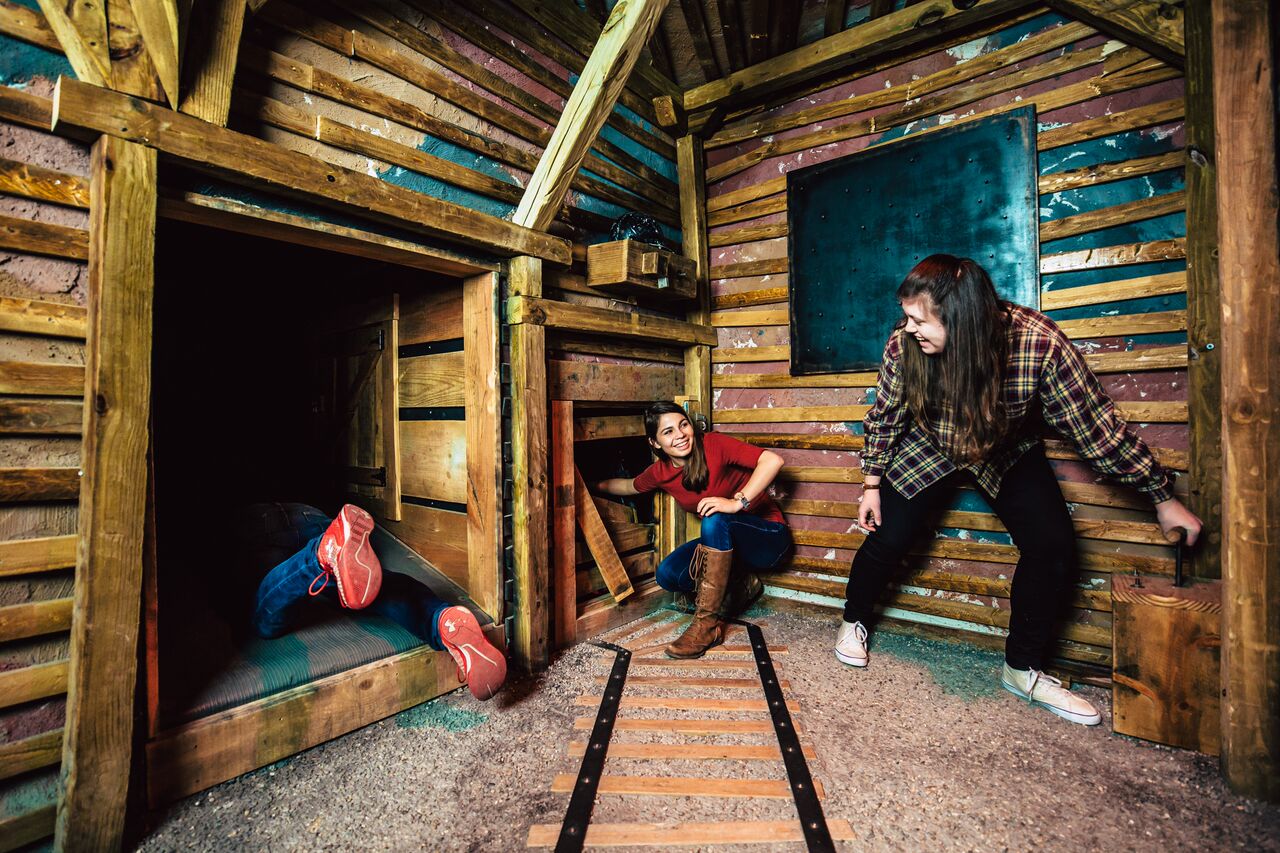Best Escape Room Experience-- Exciting Games and Puzzles for Groups
Wiki Article
Team Strategies: Just How to Work together Effectively in an Escape Space
Groups need to actively listen to each member's insights, assign functions that align with specific strengths, and keep regular check-ins to guarantee emphasis and avoid redundancy. By cultivating an atmosphere that values cohesion and adaptability, groups can significantly heighten their efficiency and success rates.Establish Clear Communication

To help with clear communication, it is essential to mark a central point of get in touch with for info dissemination. Brief, concentrated updates from each group participant can maintain the group informed without overwhelming them with information.

Appoint Functions Purposefully
While clear interaction sets the structure for effective teamwork, assigning duties purposefully makes sure that each employee's toughness are utilized properly. In an escape area scenario, the time-sensitive and intricate nature of difficulties necessitates a well-organized technique to task delegation. By identifying and leveraging individual expertises, teams can enhance their analytic abilities and improve total performance.Somebody with an eager eye for information might stand out in finding concealed items, while a logical thinker might be much better matched to fixing challenges. This duty typically calls for strong organizational and social skills.
2nd, make certain that duties are flexible and adaptable. As brand-new difficulties emerge, the team has to have the ability to pivot, reallocating tasks as called for. This flexibility assists maintain energy and protects against bottlenecks that can happen due to rigid function assignments.
Inevitably, a strategic technique to function task not just makes the most of the strengths of each group participant however also cultivates a cohesive setting, driving the team in the direction of a successful getaway.
Use Diverse Skills
Acknowledging and using the varied abilities within your team can considerably elevate your efficiency in a retreat room. Each staff member brings distinct staminas to the table, and efficiently leveraging these capacities can accelerate analytical and boost total effectiveness. A team member with strong logical abilities could succeed at understanding intricate codes or patterns, while one more with eager observational capacities might rapidly spot hidden ideas that others may forget.
Motivate team participants to articulate their understandings and concepts promptly, ensuring that all potential services are thought about. Additionally, assigning tasks that straighten with each participant's strengths can protect against traffic jams and make sure that progress is continuous.
Moreover, variety in skills commonly converts to variety in believing designs, which is invaluable in a getaway area setup. While some challenges might require sensible thinking and accuracy, others might benefit from imaginative and lateral thinking. By identifying and leveraging this diversity, teams can attend to a more comprehensive variety of obstacles a lot more effectively, thereby raising their chances of a successful retreat.
Manage Time Efficiently

First, allocate first minutes for a fast study of the space. Identify noticeable challenges and divide jobs based on staff member' toughness, making certain that no one is idle. Establish interior time checkpoints to evaluate progress regularly; for instance, objective to have half the problems resolved by the mid-point of the video game. This method can assist maintain the team concentrated and avoid time from escaping resource undetected.
Furthermore, stay clear of passage vision. If a problem is taking also long, rotate group members or carry on to another challenge, returning later on with fresh viewpoints. Communication is extremely important-- maintain every person upgraded on fixed challenges and staying tasks to prevent redundant efforts.
Last but not least, make use of any type of hints or clues moderately yet tactically - best escape room. Understanding when to ask for help can conserve useful time. By adhering to these time monitoring concepts, teams can considerably improve their opportunities of a successful and satisfying getaway area experience
read this post here
Debrief and Reflect
Representation is an essential element of team advancement and enhancement in the context of escape spaces. As soon as the challenge is finished, whether successfully or not, it is critical for the team to participate in a structured debriefing session. This procedure allows employee to analyze their performance, recognize toughness, and pinpoint locations for renovation.Begin the debrief by reviewing what went well. Highlight certain circumstances of effective interaction, analytic, useful content and collaboration. Recognizing these positive habits enhances them and urges their repetition in future difficulties.
Discuss minutes of confusion, miscommunication, or inadequate techniques. Urge an open and positive discussion where team members can share their perspectives without concern of objection.
Conclusion
In conclusion, effective partnership in an escape area is asserted upon clear interaction, strategic duty jobs, the effective use of varied abilities, and competent time monitoring. By creating a natural and adaptive group atmosphere, the probability of effectively fixing problems and attaining the purpose of running away the area is dramatically enhanced.Report this wiki page